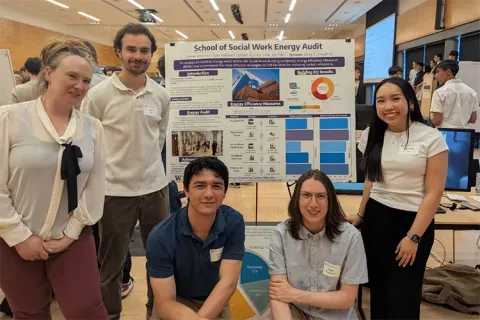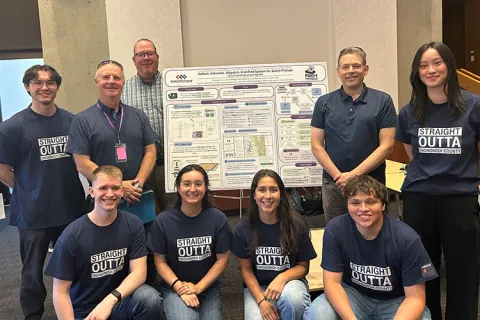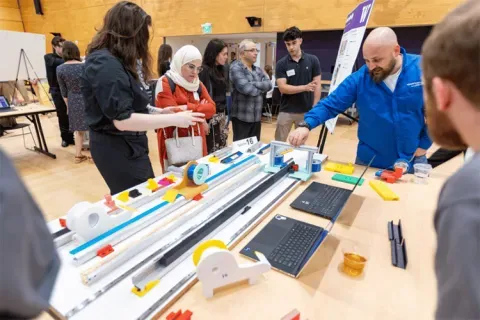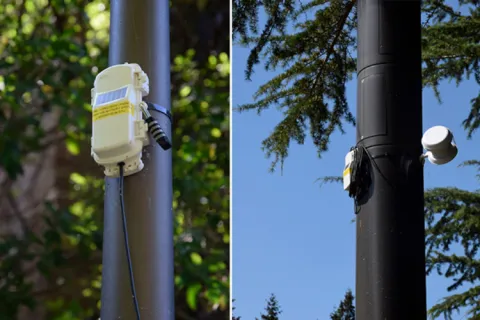UW Sensors, Energy and Automation Lab (SEAL)
Next-Generation Smart Electrostatic Air Filtration Mask
In this project, students will work to build upon the existing Smart Individualized Noncontact Extended-Wear (SINEW) mask, a cutting-edge air filtration system that leverages electrostatic precipitation (ESP) to capture airborne particles. The primary focus of this project will be to enhance the mask's reliability, comfort, and electronic integration, making it more adaptable for both personal and industrial uses. Key areas of improvement will include optimizing the electronics for more efficient power consumption, upgrading the mask’s ergonomic design for prolonged comfort, and refining the filtration technology for higher particle capture efficiency. The student team will also work on integrating real-time monitoring capabilities and investigating the scalability of the mask’s design for broader applications, such as personal air purification and industrial safety. This project is highly relevant to both Mechanical Engineering (ME) and Electrical & Computer Engineering (ECE) disciplines. ME students will focus on the design, ergonomics, and materials, while ECE students will improve the electronic systems, power efficiency, and sensor integration. Design Parameters and Performance: Improved Electronics: Design a more compact and efficient high-voltage DC power supply, capable of delivering up to 12.1 kV at low power consumption. Minimize power loss and enhance the reliability of the mask's electrostatic filter. Comfort and Ergonomics: Redesign the mask’s fit, focusing on weight distribution, breathability, and long-term wearability. The mask will feature adjustable elements to ensure secure and comfortable use. Filtration Efficiency: Enhance the ESP system to increase particle capture efficiency to over 99%, especially for sub-micron particles. The focus will be on better ionization control and improved electrode design to optimize airflow. Integration: The project will explore integrating IoT features, such as real-time data collection and monitoring of air quality, filter efficiency, and battery life, allowing the user to adjust settings for different environments. Outcomes: Key deliverables include a fully functional, improved version of the SINEW mask with enhanced filtration, comfort, and usability. The student team will work toward developing a more efficient high-voltage power supply and refine the ergonomic design for long-term wear. In fact, the prototype will feature real-time data monitoring and adjustable settings, making the mask versatile for different environments. Additionally, the team will provide comprehensive documentation, including user manuals and test results demonstrating increased filtration efficiency and power optimization, along with a final report summarizing the system’s performance and potential for further development.
Faculty Adviser(s)
Alex Mamishev, Electrical & Computer Engineering
Related News

Mon, 10/13/2025 | UW Mechanical Engineering
Capstone collaboration leads to award
An ME capstone team received first place for its energy audit of the UW School of Social Work building.

Thu, 07/17/2025
UW engineering students develop smart ballot solution
UW engineering students develop smart technology solution to improve ballot collection for Snohomish County.

Mon, 07/07/2025 | UW Mechanical Engineering
Capstone creations
Students displayed innovative capstone design projects at the 2025 expo.

Fri, 09/20/2024 | UW Civil & Environmental Engineering
Smarter irrigation for a greener UW
A new project combines satellite data with ground sensors to conserve water and create a more sustainable campus environment.